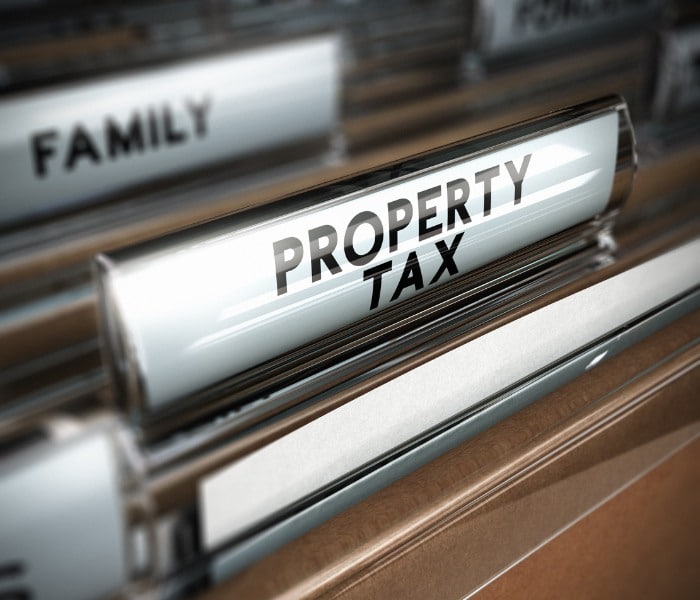Property taxes are a necessary expense for homeowners. These taxes are collected by local governments to fund public services, such as schools, libraries, roads, parks, and other community amenities. Failure to pay property taxes, however, can result in serious consequences, including the loss of your home. When property taxes go unpaid, the delinquent amount becomes a lien on the home. If the homeowner does not pay off the financial obligation, the taxing authority may sell the property, potentially through a tax foreclosure process. Each state has a different tax sale process, but generally, the two types of tax sales are tax deed sales and tax lien certificate sales.
In a tax deed sale, the taxing authority sells the home outright, and the buyer receives the title to the property. However, the purchaser may not receive the deed immediately, as a redemption period may need to expire before the buyer takes possession. In a tax lien certificate sale, the taxing authority sells the tax lien, and the purchaser has the right to collect the debt, penalties, and interest. If the homeowner does not pay the delinquent amounts by a specified deadline, the lien purchaser can typically foreclose or use other procedures to obtain ownership of the real estate property. Yeah, property taxes may sound complicated, I know, and that’s because they actually are.
Watch Out for the Real Estate Property Tax Pay Dates – Don’t Risk Your Home
In some jurisdictions, the taxing authority takes title to the home and sells it, while in others, the taxing authority uses a foreclosure process before holding a sale. Regardless of the process used, many states allow the homeowner to “redeem” the property after a property tax sale by reimbursing the buyer the amount paid at the sale, plus interest and costs, within a limited time.

If a homeowner has a mortgage on their property, their loan servicer may collect property taxes as part of the mortgage payment and pay the taxes on their behalf through an escrow account. If the taxes are not paid through escrow, the homeowner must pay them directly. It could happen that the homeowner does not pay the property taxes, so the loan servicer may pay any delinquent taxes and then bill the borrower for them. Property tax liens generally have priority over other liens, including mortgage liens and deed of trust liens, and a tax sale can wipe out any mortgages. The loan servicer will typically advance money to pay delinquent property taxes to prevent this type of sale from occurring and demand reimbursement from the borrower. Failure to reimburse the servicer can result in default under the mortgage’s terms and potential foreclosure.
How to Reduce Your Property Taxes Bill Using the Available Instruments
One way to reduce your property tax bill is by taking advantage of a homestead exemption. For example, in San Antonio and Bexar County, Texas, homeowners can receive either $5,000 or a percentage off their home’s valuation, depending on the location. In San Antonio, homeowners can receive either $5,000 or 10% off, while in Bexar County, homeowners can receive either $5,000 or 20% off.
To qualify for the exemption, you must own and occupy your home, and the address on your driver’s license or state identification must match the property’s address. The Bexar County Tax Assessor-Collector’s Office estimates that around 90,000 homes qualify for the tax write-off.
If you have a homestead exemption, the value of your home can only increase up to 10% annually. Applying for a homestead exemption is free, and you can apply at any time, although the largest refund is given if you apply by April 30th. You will receive money back for the prior two years if you apply by April 30th, and one year if you apply after that date.
There are other exemptions you may qualify for as well, such as exemptions for homeowners who are 65 or older, disabled individuals, 100% military disabled veterans, and surviving spouses of an armed services member killed or fatally injured in the line of duty. Homeowners struggling with past due property tax, mortgage, or utility bills can also apply for the Homeowner’s Assistance (HAF) Program, which offers a grant of up to $65,000 in assistance.
How to Qualify for This Real Estate Property Taxes Exceptions
To be eligible for the HAF program, you must own and occupy your home as your primary residence, be late on one or more payments (including mortgage, property tax, property insurance, or HOA/condo fees), have a household income at or below $79,900, and have experienced financial hardship after January 21, 2020, resulting from the pandemic.
Required documents for the HAF program include an approved form of ID (such as a driver’s license, social security card, military ID, state ID, or birth certificate), a verified income statement (such as a W2, IRS Form 1099, tax return, pay stub, or employer attestation), and evidence of delinquency (such as a delinquent tax statement or notice from a tax attorney).